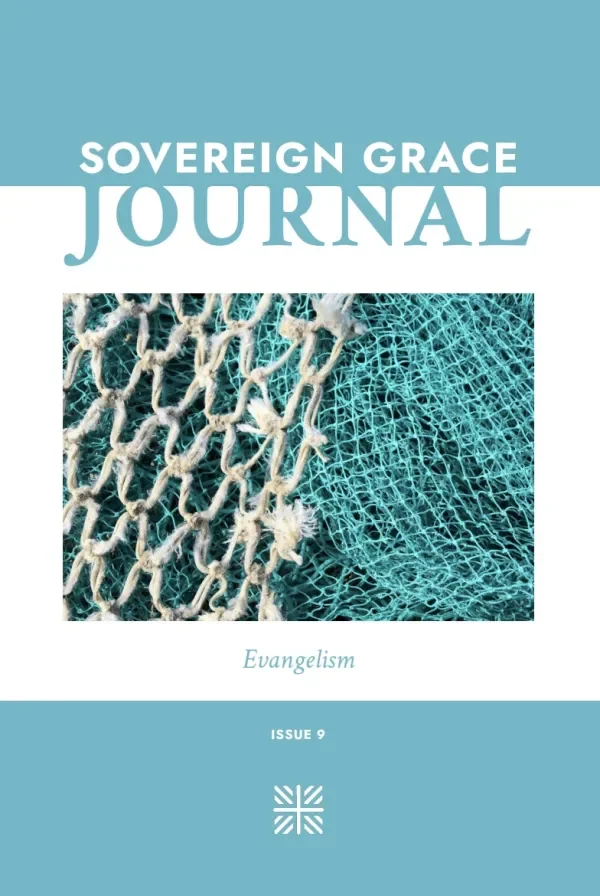In the midst of all the lies and broken promises, Christmas is the most magnificent, consequential, and profound promise ever made and kept. Below is an outline summary of the sermon for your further study and deeper reflection.
SERIES: The Book of Advent
TEXT: Genesis 3:1-24
TITLE: Advent and the Garden
PREACHER: Derek Overstreet
SERMON EXCERPTS:
All quotes and text emphasis are taken directly from the pastor’s notes.
“Life is filled with broken promises. Some are minor and nonconsequential, while others are utterly devastating and leave scars. In the midst of all the lies and broken promises, Christmas is the most magnificent, consequential, and profound promise ever made and kept.”
“Today, we begin a Christmas series called The Book of Advent. Now you won’t find the word advent in the Bible, but its meaning, coming or arrival, is everywhere. When you think about it, the Bible is The Book of Advent because from beginning to end it is about the promised comings of Christ.”
“Here's how we are going to celebrate Advent this season:
- Isaiah 9 - Advent and the Prophets
- Galatians 4 - Advent and our Identity
- Revelation 5 - Advent and Eternity
But we begin in the beginning. The first promise of Advent is in the Garden.”
“Our Need for Advent - The first seven verses record mankind’s darkest day ever. Tempted by Satan, who took the form of a serpent and twisted God’s words—a reminder that the seed of sin is doubting God’s Word—Adam and Eve ate from the one tree God forbade them to eat from. Their disobedience immediately plunged humanity into sin. Adam and Eve knew it—read 7-8. They were afraid, they were overwhelmed with guilt, and their shame drove them to run and hide from God. This is humanity’s story, and it was once our story: guilty sinners running and hiding from God.”
“Of course, no one can hide from God. Where can I go from your Spirit and where can I flee from your presence is the confession of Psalm 139. No one can hide from God. So God dealt with Adam and Eve, and Satan, through His righteous judgment. God’s holiness demanded that Adam’s sin be dealt with, and it was, in the form of a curse—read 14-19. The world continues to bear this curse.”
“These verses explain why the world is as it is:
- Pain and suffering
- Disease and Death
- Loneliness and Addiction
- Gender dysphoria and same-sex infatuations
- Relational conflict and abusive relationships
- Adultery and Abortion
- Futility and frustrations of work
If you can relate to these things, and we all can, it’s because the effects of sin and its curse are everywhere, and our life experiences affirm it. But there’s an even deeper problem. What we see in 14-19 are just symptoms of humanity’s real dilemma.”
“Because of their sin and guilt, Adam and Eve were separated from God’s presence. Banished from Paradise. Their fellowship with Him was broken, and they spiritually died.”
“This is the great human dilemma that Advent is meant to fix. We are born under the curse. We are cursed by the cursed. And we can do nothing to make things right. Our politics can’t fix it. Our morality can’t fix it. AI can’t fix it. Science can’t fix it.”
“In January, we begin preaching through Romans. Paul spends a good portion of the first seven chapters unpacking the nature of this dilemma. Through Adam, we have inherited a sin nature that leads to our personal sin and guilt, making us like Adam, separated from God and spiritually dead and under the wrath of God like the rest of mankind—Merry Christmas!”
“God’s Promise of Advent - And surprisingly, the plan for that divine pursuit is embedded deep in the curse itself—read 15. Buried deep in the Genesis 3 curse is the first promise of Christmas. It’s known as the Protoevangelium—first announcement of the gospel.”
“The serpent, that is Satan, will bruise the heel of Eve’s offspring. To bruise the heel is to cause suffering, which Jesus experienced at the cross. But he could not be destroyed. The grave could not hold him down. He rose triumphant over sin and Satan. But Eve’s offspring, specifically Jesus, will bruise the head of Satan. To bruise the head is to do more than cause suffering—it’s to crush and destroy.”
“Buried deep in the curse, God says to Satan, who has seemingly destroyed God’s perfect creation, I will crush you. I will defeat and destroy you.
“Think of Genesis 3:15 as the prophetic promise of the three C’s of Satan’s demise: C#1 Christmas: The first blow to Satan was when Jesus was born into this world to inaugurate God’s promised plan of redemption. Christmas is the beginning of the fulfillment of this glorious promise made in the darkest hour of human history. In the manger lay Jesus, a fully human baby boy, yet still fully God, who came into this world to redeem sinners from the curse by becoming a curse for us. He was born in a manger, grew up in sorrow and grief, and died on a cross to destroy Satan and liberate sinners from his bondage, just as the Christmas angel proclaimed: She will bear a son, and you shall call his name Jesus, for he will save his people from their sins—Matthew 1:21.”
“C#2 Cross: The DECISIVE blow that defeated Satan was at the cross. Since therefore the children share in flesh and blood, he himself likewise partook of the same things, that through death he might destroy the one who has the power of death, that is, the devil—Hebrews 2:14.”
“The cross removed Satan’s one certain weapon against us—his accusations before the throne of God that we are guilty sinners that deserve to perish along with him—and he’s right. But the cross nullifies those accusations because in a crucified and risen Savior, we are justified—made right—before God! Not because of anything we did or can do, but wholly based on Jesus' blood and righteousness. We see this in a veiled way in our text—read 20-21.”
“In the Garden, God didn’t just pursue Adam and Eve by calling out to them. He provided for their need. He covered their shame and guilt by mercifully providing and protecting them by clothing them with animal skins. Guess what had to happen for them to be covered in this way—the blood of the animals had to be shed. Just as Hebrews 9:22 says—no bloodshed, no forgiveness of sins.”
“C#3 Consummation: The final blow to Satan will be Christ’s return, the second advent, according Romans 16: The God of peace will soon crush Satan under your feet—Romans 16:20. So this scene in Genesis 3 becomes so clear now. Buried deep in the middle of the curse is the beginning of Advent. Here’s the big question—How do we respond?”
“UNBELIEVER: At a time of year when the most popular question is What do you want? But the true Christmas question is the same question God asked Adam and Eve in the Garden—read 8-9. The moment Adam and Eve fell into sin, God pursued them with these words: Where are you? That question doesn’t reveal a lack in God; it reveals the love of God. This is the heart of Christmas—we run and hide from God, but God graciously calls and relentlessly pursues. God mercifully pursuing sinners, even to the point of God himself taking on flesh, becoming a servant, and ultimately offering Himself as a sin sacrifice, and revealing Himself for salvation.”
“This is why we want to build our lives into the local church. This is why we want to grow in evangelism. This is why we want to plant a church on the east side.”
“But those who don’t know Jesus—Where are you? Whether you realize it or not, you are running from God. The Spirit wants to stop you in your tracks today—BELIEVE!”
“CHRISTIAN: The same question this Christmas—Where are you? Are you spiritually parched? Haunted by the guilt and condemnation of past sins? Under the crushing yoke of addiction? Does sinful anxiety paralyze you? Is loneliness dogging you relentlessly? Have worldly pursuits left you spiritually apathetic? Is physical suffering suffocating your joy? Are you running toward the world and away from God? Allow the Spirit to stop you in your tracks today, and return to the true JOY and HOPE of Christmas. Here’s one way to practice this: Over the next few weeks, you will be repeatedly asked, "What do you want?" In that moment, allow that question to move you to remember what you have already been given.”
“You don’t have to be a holy roller here—Thank you, but I don’t need anything because I already have everything in Jesus. The truth is this: Buried deep in the experiences and busyness of your life is this wonderful, unchanging gospel reality: God Himself, the same God who walked in the cool of the Garden graciously calling for Adam, put on humanity to die on a cross for your sin. God has been faithful to provide for your greatest need. Once you were separated from God and under His eternal judgement, but now in Jesus, you belong to Him as His beloved, FOREVER. This is the Christian’s hope in life and death! Allow the many moments you will be asked, What do you want?, to be moments of rehearsing, relishing, and resting in the greatest gift you can ever possess, Jesus Christ, your Lord and Savior.”
“Prayer - Lord, you know the hearts and needs of your people. We humbly ask you, wherever we are this Christmas, when Satan tempts us to despair, when discouragement tries to suffocate our joy, give us eyes to see the promise buried deep in Genesis 3:15, that the Garden would lead to a manger that would lead to a cross for our that would pave the way for our salvation and secure the promised return of our Lord and Savior who will one day bring us home to live in your glorious presence, free from the curse of sin and full of wonder and awe—Forever!”
QUOTES:
John Piper - “It’s a season [Christmas] for cherishing and worshipping this characteristic of God—that he is a searching and saving God, that he is a God on a mission, that he is not aloof or passive or indecisive. He is never in maintenance mode, coasting, or drifting. He is sending, pursuing, searching, saving. That’s the meaning of Advent.”
SONGS FROM THIS SUNDAY:
Hope of the Ages
God Made Low
Who Would Have Dreamed
Scripture Reading: Luke 2:1-7
What Child Is This
God Is Faithful (Psalm 114)
NEXT WEEK’S PASSAGE:
Isaiah 9:6-7 - Advent and the Prophets
THE BOOK OF THE QUARTER:
















